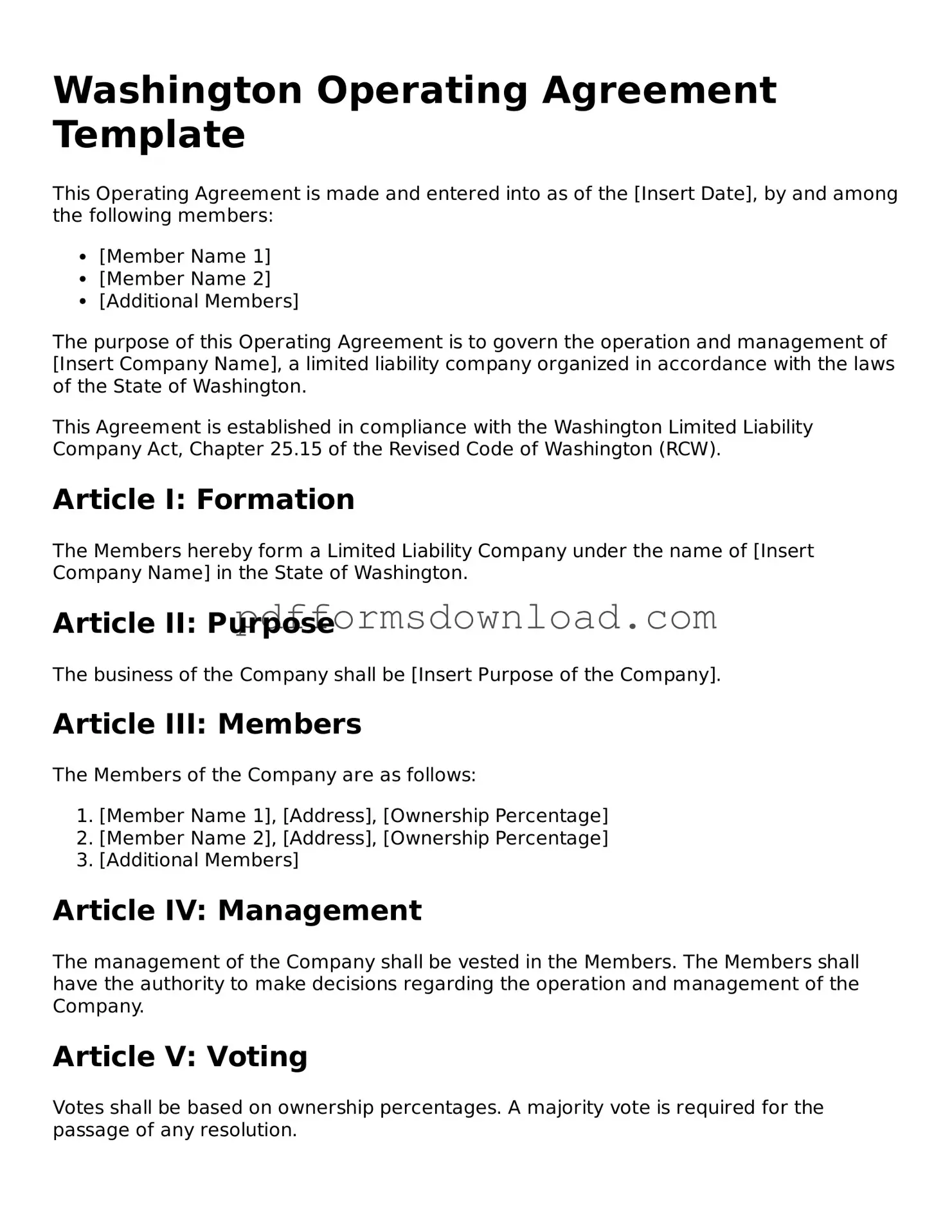Printable Washington Operating Agreement Form
The Washington Operating Agreement form is a crucial document for limited liability companies (LLCs) operating in Washington State. This form outlines the management structure, member responsibilities, and operational procedures of the LLC. Completing this form ensures clarity and legal protection for all members involved.
To get started, fill out the form by clicking the button below.
Make This Document Now

Printable Washington Operating Agreement Form
Make This Document Now

Make This Document Now
or
Free PDF File
Your form is almost ready
Complete your Operating Agreement online — edit, save, and download easily.